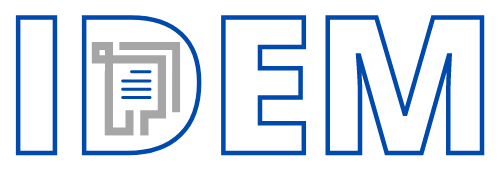EACME 2024
Translating ethics into healthcare practice and research. Potentials and Risks
Time: 12th-14th September 2024
Venue: Martin-Luther-University Halle-Wittenberg, Löwengebäude, Universitätsplatz 11, 06108 Halle/Saale (Germany)
Organization: Institute for History and Ethics of Medicine (director: Prof. Dr. med. Jan Schildmann, M.A.) in collaboration with the Interdisciplinary Center for Health Sciences, Medical Faculty of the Martin Luther University Halle-Wittenberg
Translating ethical norms and values into healthcare practice, research and public health has received considerable attention in recent years. While the concept of “translation” has been used rather heterogeneously in the bioethics discourse, there seems to be a shared underlying notion that it is not enough to formulate ethical norms or values for them to have an impact in and on healthcare. The emerging field of translating ethics builds on related developments. One such development is the understanding of bioethics as an academic field which has as strong orientation towards practice. Furthermore, translational research (e.g., proof of concept studies or evaluation research) in bioethics is often informed by the accounts of combining normative and empirical analyses as they have been developed in the context of the so called “empirical bioethics”.
While the general idea of translating ethics into healthcare seems to be attractive – not only for researchers in bioethics but also for funding organizations and the different professions working in healthcare and research – there are conceptual, methodological, and practical challenges. On a more fundamental level it is not undisputed whether a sound concept of translation of ethics is possible (e.g., in analogy to the elaborated concepts in translational medicine). Even if we may agree on this possibility, it is debatable whether translational studies are a task for researchers in bioethics or rather for experts from other disciplines. This raises questions regarding the disciplinary expertise needed for translating ethics. Furthermore, there have been few translational studies published so far which could serve as illustrating example for translating ethics into healthcare or research. Finally, one might also wonder whether there are risks associated with translating ethics into healthcare. Such negative consequences could be envisaged for both the field of bioethics and for healthcare practice and research.
To speak meaningfully of translation of ethics and to realize its potential clarification and operationalization of the concept is required. Against this background, the EACME conference 2024 in Halle/Saale aims to explore conceptual foundations, methodological challenges as well as best practice examples which deal with translating ethics.
Next to contributions which fall under the conference topic we welcome abstract submissions on topics beyond the conference theme.
Conceptual and methodological foundations:
- Methodological issues and methods for translating ethics into healthcare practice and research
- Theoretical foundations and justifications for translational ethics
- The role of qualitative and participatory research in translating ethics
- Commonalities and differences between models of translational ethics
Translating ethics into healthcare practice:
- The role of clinical ethics support services, ethics tools and further interventions for translating ethics into healthcare practice (individual as well as organizational level)
- Teaching ethics as a means of translation in healthcare practice
- Digital technologies and their role for translating ethics into healthcare practice
- Limits to and risks of translating ethics into healthcare practice
Translating ethics into health research:
- Contributions of research ethics services regarding translation of ethics into healthcare research
- Translating ethics into “healthcare 4.0”
- Teaching research integrity as means of translating ethics into research
Translating ethics through guidance
- Methods and methodology for ethical guidance on the micro-, meso- and macro- level of healthcare
- The role of guidelines and policies for translating ethics into healthcare practice, public health, and health research
- Ethical expertise and its relevance for translating ethics into healthcare
For further information please see the conference website.
Submission:
Abstracts can be submitted via the conference website: www.eacme2024.org. You will also find information on the first confirmed keynote speakers. Deadline for abstracts: 15th March 2024.
Contact:
Prof. Dr. med. Jan Schildmann, M.A.
Institut für Geschichte und Ethik der Medizin
Medizinische Fakultät der Martin-Luther-Universität Halle-Wittenberg
Magdeburger Straße 8
06112 Halle (Saale)
Email: geschichte.ethik@uk-halle.de
Tel: 0345 557 3551
Fax: 0345 557 3557
